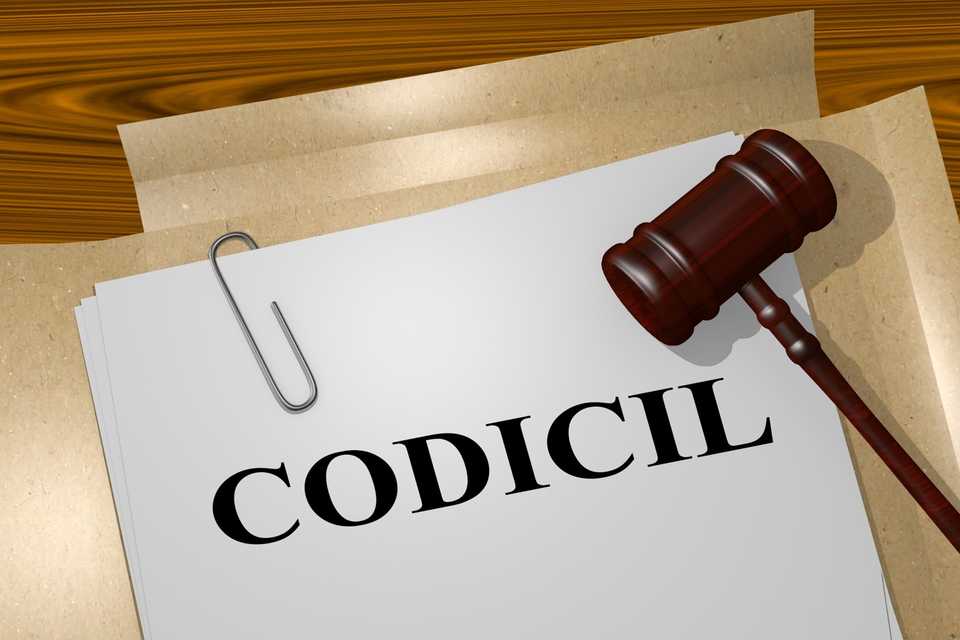In Canada, making changes to a will is a relatively straightforward process.
However, it is essential to understand the legal implications and the appropriate methods for doing so. Many people wonder whether they can alter their will without consulting a lawyer.
The answer is yes, but it requires a clear understanding of the legal requirements to ensure that any modifications are valid and enforceable.

| In this article, JuriGo examines the main reasons you might need to update your last will and provides clear guidance on how to make changes without a lawyer. It also highlights the situations where consulting a lawyer is strongly recommended! |
|---|
Why Should You Consider Updating Your Last Will?
A last will is not a static document; it should evolve alongside your life circumstances to reflect your current wishes and intentions. Life is full of unexpected changes, and there are many reasons why you might need to revise your will to ensure it still aligns with your desires.
Some of the most common reasons include:
| Reason | Explanation |
|---|---|
| Changes in family dynamics | Life events such as marriage, divorce, the birth of children, or the death of a beneficiary often lead to changes in your family structure. These changes may impact the distribution of your estate. For instance, a divorce could mean excluding a former spouse from your will. Similarly, if a beneficiary passes away, you may want to reallocate their share of your estate to someone else. Updating your will ensures that your estate is distributed according to your current family situation. |
| Acquisition or sale of assets | Significant changes in your financial situation, such as purchasing new property, acquiring investments, or selling assets, may require you to adjust your will. For example, if you acquire a second home or inherit a large sum of money, you will need to ensure your will reflects how you want these assets distributed. Likewise, if you sell or give away substantial assets, your will must be updated to avoid any confusion about how to allocate your estate. |
| Relocation | If you move to a different province or country, the laws governing wills and estate distribution may differ. A will that was valid in your previous location might not meet the legal requirements of your new jurisdiction. In such cases, it is essential to revise your will to ensure it adheres to local legal standards and remains enforceable in the event of your passing. |
| Changing beneficiaries | As relationships change, so too might your choice of beneficiaries. Over time, you may decide to add or remove individuals from your will based on the evolution of these relationships. Whether you want to include a new partner, exclude someone from your past, or add a charity as a beneficiary, it is important to make sure your will accurately reflects your current wishes. |
| Tax and financial considerations | Changes in tax laws or financial circumstances may also necessitate a revision of your will. For instance, new tax strategies may offer ways to minimize estate taxes or protect certain assets from being taxed. Updating your will in light of these changes can help preserve your estate’s value, ensuring more of your wealth is passed on to your heirs instead of being consumed by taxes. |

Recognizing when these life events occur and updating your will accordingly is vital in ensuring that your estate plan remains current, legally valid, and aligned with your wishes. Regularly reviewing your will, especially after significant life changes, can help avoid potential conflicts or confusion down the road.
How Can You Change Your Will Without a Lawyer?
Changing your will in Canada without the help of a lawyer is entirely possible, but it’s crucial to follow the appropriate legal procedures to ensure your changes are valid. Whether you're making a minor update or completely revising your document, there are three main approaches to consider.
Before proceeding, it's important to understand the legal requirements and steps involved in making a legitimate modification to your will.
The three primary ways to change your will without legal assistance are; annotating the original will, creating a codicil, or drafting an entirely new will. Each option has its own legal considerations and is best suited for different situations.
Manually Annotating Your Will
While it is generally not recommended, one option for changing your will without a lawyer is to manually annotate it. This method involves writing directly on the original document to reflect the desired change. For example, you might change the name of a beneficiary.
To make the changes legally valid, you must follow these steps:
- Initial the Change: When you make a change to the will, you should initial next to the modification to indicate that it is an intentional alteration.
- Witnessing the Change: Depending on the province, it may be necessary to have two witnesses sign or initial next to the changes. These witnesses must not be beneficiaries of the will, as this could create a conflict of interest.
While this method may seem straightforward, it carries some risks. Courts may challenge the validity of handwritten changes, especially if they are unclear or appear to have been tampered with.
Additionally, if you make multiple alterations over time, the will may become difficult to interpret. For these reasons, it is generally advised to use this method only for minor changes and to avoid it for major revisions.
Creating a Codicil
A codicil is a legal document that amends, rather than replaces, your original will. It serves as an addition to your will and can be used to address minor changes, such as updating the name of your executor or changing a beneficiary. Depending on the province, a codicil must be signed and witnessed in the same manner as the original will.
To create a valid codicil:
- Identify the Changes Clearly: Specify exactly what parts of the will are being amended and the new instructions in detail. For example, “Change the executor from Mary Smith to Jane Pearson.”
- Proper Execution: In most provinces, a codicil, like the original will, must be signed by you and witnessed by two adult witnesses who are not beneficiaries. This ensures that the changes are legally binding.
- Attach the Codicil to the Will: Keep the codicil securely attached to the original will to avoid confusion. Make sure that both documents are stored together in a safe place and ensure that the executor is aware of the codicil’s existence.

Codicils were historically popular because they saved the trouble of retyping a whole will. Today, however, they are less common due to the simplicity of drafting an entirely new will. Nevertheless, codicils remain a valid and effective way to make minor amendments, provided all the legal requirements are met.
Drafting a New Will
If you need to make significant changes to your estate plan, drafting a new will may be the most appropriate choice. This method ensures that your intentions are clearly laid out and that there is no confusion or conflict between the old and new versions.
When creating a new will:
- Revoking the Old Will: In your new will, you must explicitly state that all previous wills and codicils are revoked. This prevents any inconsistencies between old and new documents.
- Proper Execution: In most provinces, like the original will, the new document must be signed by you in the presence of two witnesses who are not beneficiaries. These witnesses must also sign the will.
- Secure Storage: It is crucial that your new will is stored securely and is easily accessible to your executor. Inform your executor about the location of the new will and ensure they know it supersedes any previous documents.
Drafting a new will is often the most straightforward method for making significant revisions, as it eliminates the possibility of confusion or disputes over previous versions.
Legal Requirements for Changing a Will
While you may change your will without legal assistance, it is essential to adhere to the legal requirements to ensure that your changes are valid and enforceable. These requirements can vary slightly between provinces, but the following are the general rules that apply across Canada:
| Legal requirement | Explanation |
|---|---|
| Age of majority | To make or change a will, you must be of legal age, which is generally 18 or 19 years old, depending on the province in which you reside. If you are underage, your will may not be legally binding. |
| Mental capacity | To create or amend a will, you must be of sound mind, meaning you should comprehend the actions you're taking and their consequences. While you don't need to grasp every legal term, you must understand that it's your will and what it entails. You should be able to recall your property and assets, know who you're naming as beneficiaries, and be aware of the consequences of disinheriting someone. Mental incapacity may render changes to your will invalid. |
| Proper execution | When amending your last will, it is crucial to follow the correct procedures to ensure its validity. Typically, this involves signing the document in front of two adult witnesses, who must also sign. These witnesses cannot be beneficiaries to avoid conflicts of interest.While the process is generally the same across Canada, some provinces may have specific requirements, so it’s important to be aware of any local differences. In certain provinces, a holographic will or codicil, which is completely handwritten by you, may not require witnesses.However, to avoid potential challenges to the document's validity, it is always recommended to have witnesses present. Following these precautions will help ensure your changes are legally binding. |
| Clear language | Whether you are making changes via a codicil or drafting a new will, it is important to use clear and precise language to avoid confusion. Ambiguities in your will could lead to disputes or delays in the distribution of your estate. |

Changing your will without a lawyer is entirely possible in Canada, and there are several methods available to suit different needs. Whether you opt for a codicil or a new will, it’s essential to ensure that you follow all legal requirements to make the changes valid.
Regularly reviewing and updating your will is a crucial step in managing your estate, and doing so properly will ensure that your wishes are carried out as intended. If in doubt, consulting a lawyer is always advisable, particularly for more complex changes, to safeguard against potential legal issues in the future.
Tips for Successfully Updating Your Will:
If you decide to update your will without a lawyer, there are several best practices you can follow to minimize the risk of errors and ensure that your changes are valid. Here are some tips to help you navigate the process:
- Be Clear and Specific: One of the most important aspects of a will is clarity. Ambiguous language or vague instructions can lead to confusion and disputes. When updating your will, be as specific as possible about who is receiving which assets, and ensure there is no room for interpretation.
- Keep It Simple: Avoid making overly complex changes to your will that could require legal interpretation. Simpler, more straightforward amendments are easier to execute and understand.
- Inform Relevant Parties: It's important to inform your executor, family members, and beneficiaries of any changes you make to your will. This will help avoid surprises and ensure that everyone is aware of your wishes.
- Store Your Will Safely: After updating your will, store it in a secure location, such as a fireproof safe or with a trusted individual. Attach any amendments to the original document, and inform your executor where it’s kept. In Canada, registering a will is not required for legal validity. Only British Columbia and Quebec offer will registries.
By following these best practices, you can ensure that your will is up to date, clear, and legally valid, even without the assistance of a lawyer. However, if your situation is complex, it's always wise to seek legal advice to ensure that your will is properly executed and your wishes are fulfilled.
When Should You Consult a Lawyer to Modify Your Last Will?
Creating or updating your will is an essential task in estate planning.
While some minor changes can be handled independently, certain situations require professional legal advice to ensure your will is valid, clear, and comprehensive. Seeking the assistance of a lawyer can save you from costly errors, disputes, and complications that may arise after your death.
Here are several scenarios when consulting a lawyer is highly recommended:
Complex Estates
If your estate includes multiple properties, business interests, investments, or international assets, it's advisable to consult a lawyer when making changes to your will. These types of estates involve intricate legal and tax considerations that a legal expert can help navigate.

For example, dealing with foreign assets may require compliance with international laws, while business ownership structures may need to be addressed in specific ways to avoid complications with the succession of your company. A lawyer will ensure that all aspects of your estate are covered and that your will accurately reflects your intentions.
Blended Families
Blended families, which involve children from previous marriages or relationships, can present unique challenges in inheritance matters. In these situations, careful planning is essential to ensure that each family member is treated fairly and that your wishes are clearly communicated.
A lawyer can help you navigate sensitive issues, such as determining how to divide assets among your biological children, stepchildren, and your spouse. Without legal guidance, there’s a higher risk of conflict among heirs, especially if the distribution of assets isn't clearly outlined or if certain family members feel excluded.
Significant Changes
If you are considering making substantial changes to your will, such as altering the beneficiaries, changing your executor, or reorganizing the overall structure of your estate, it’s wise to seek legal advice. These changes can have significant ramifications, and a lawyer can ensure that the modifications are made correctly, legally, and in a way that reflects your true intentions.
A lawyer can also help you assess whether changes to one part of your will might affect other sections, ensuring that the entire document remains coherent.
Avoiding Disputes
One of the primary reasons to consult a lawyer when updating your will is to minimize the likelihood of disputes among your heirs. A lawyer can help you draft your will in a way that is clear, fair, and legally enforceable.
This can significantly reduce the chance that your beneficiaries will challenge your will after your death, which could lead to lengthy legal battles and delays in the distribution of your assets. A lawyer will ensure that your instructions are explicit and that the language used in the will leaves little room for ambiguity or interpretation.
Seeking legal advice in these cases ensures your will is robust, valid, and accurately reflects your wishes!
What Are the Risks of Changing a Will Without a Lawyer?
While it is possible to modify your will without a lawyer’s assistance, doing so comes with certain risks. Making changes to your will without the benefit of legal advice can lead to complications that could undermine the effectiveness of your will.

Below are some of the key risks associated with bypassing a lawyer when updating your will:
| Risk | Explanation |
|---|---|
| Unintentional errors | Making changes to your will without the proper legal knowledge can result in unintentional mistakes. Simple errors, such as unclear wording, incorrect execution, or improperly witnessing the document, can lead to confusion or even the invalidation of your changes. |
| Overlooking tax implications | Updating your will without the guidance of a lawyer may cause you to overlook important tax considerations. Certain changes, such as gifting property or transferring business ownership, can have significant tax implications for your estate and beneficiaries. A lawyer can help you understand these implications and ensure that your will is structured in a way that minimizes potential tax liabilities for your heirs. |
| Failure to meet legal standards | Each province in Canada has specific legal requirements for creating and updating a will. These requirements can vary significantly, and failure to meet them could render your changes invalid. For instance, some provinces may require particular formalities, such as the number of witnesses. A lawyer can ensure your will complies with the laws of your jurisdiction, avoiding potential legal issues down the line. |
| Inconsistent documents | When updating your will, it's important to properly revoke previous versions to prevent conflicting instructions. If you fail to do this or create multiple codicils (amendments to your will) that don't align, you could end up with inconsistent documents, which can lead to confusion and disputes among your heirs. A lawyer can help ensure that all versions of your will are consistent and that previous documents are properly revoked. |
| Challenges to the will | Wills that have been amended without legal oversight are more likely to be contested, especially if they involve significant changes. Beneficiaries who feel excluded or dissatisfied with the distribution of assets may contest the validity of the will, leading to lengthy legal battles. Consulting a lawyer can help you avoid mistakes that might give rise to such challenges and ensure that your will is legally sound. |
JuriGo Can Help You Find the Right Last Will and Testament Lawyer!
When it comes to updating your will, the expertise of a last will and testament lawyer can be invaluable, especially for significant revisions or complex estates. While minor updates, such as changing a beneficiary, may be handled independently, more substantial changes often require drafting a new will to maintain legal compliance and clarity.
A skilled lawyer can guide you through provincial laws, address potential tax implications, and prevent errors that could lead to disputes or invalidate your wishes. With their help, you can ensure your will accurately reflects your intentions and is fully enforceable. Regular reviews and professional advice provide peace of mind, safeguarding your estate for the future.

JuriGo provides a simple, fast, and free solution for finding a last will and testament lawyer! Our service is confidential, free of charge, and requires no commitment.
Simply fill out our request form, detailing your situation, and we will promptly connect you with the right lawyer in your area!